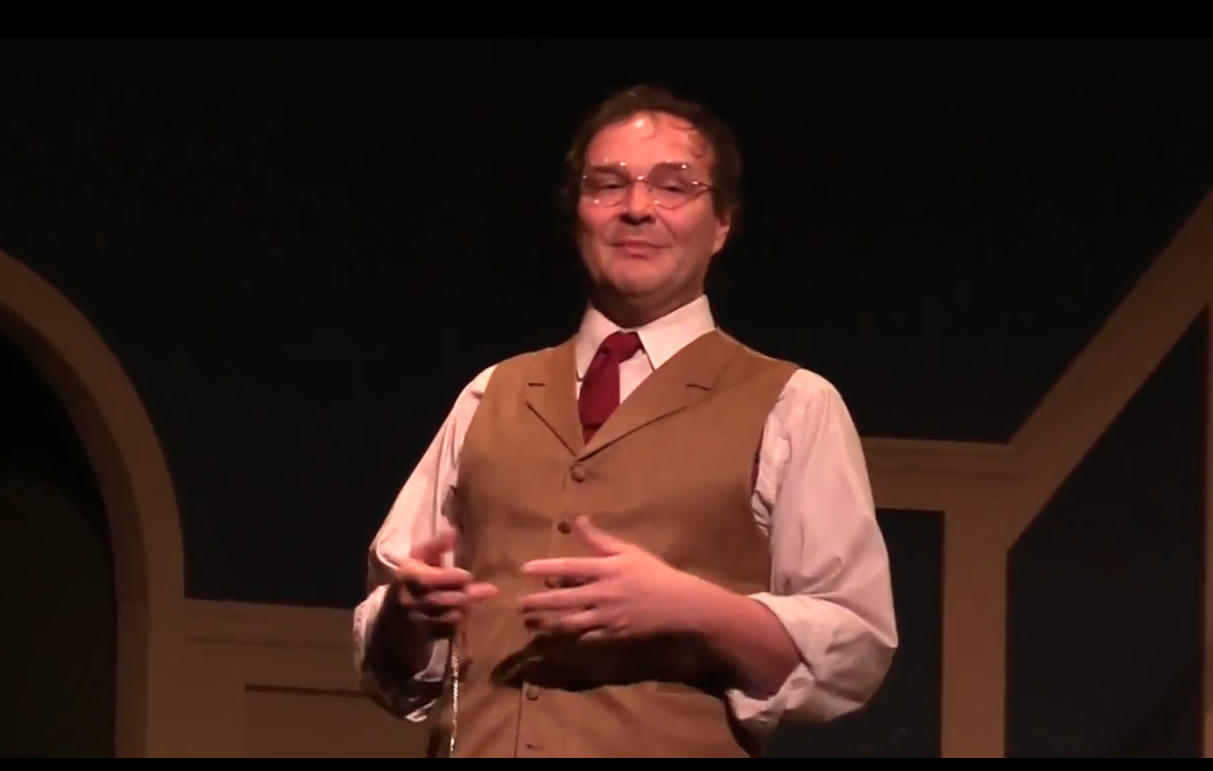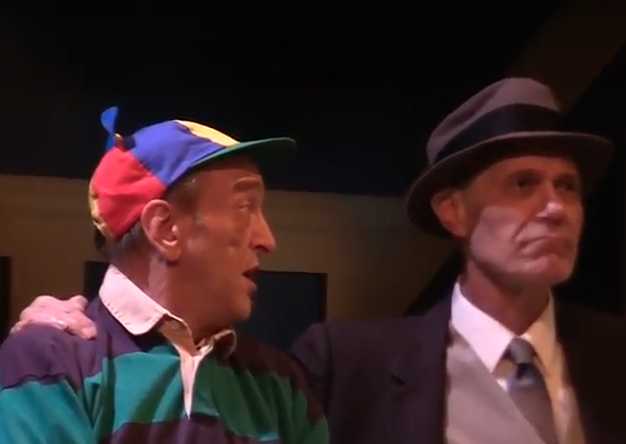
Jonathan Christian
Theater folks talk a lot about text, subtext, meta-text. Blah, blah, blah. But there’s another, special kind of language that arises during rehearsals when actors are getting to know their characters and castmates. It doesn’t have a name (that I know of) so I’m going to call it the gag-text, with all implications potentially operative.
No matter how serious the actor, or how intense the scene, chances are jokes will be discovered in rehearsal. Often, inappropriate ones. And if the cast is especially clever (and even sometimes when it’s not), at some point during the run somebody inevitably suggests, “Wouldn’t it be awesome if we could do one show where we did our hilarious and vulgar version of The Sound of Music instead of the same old Do Re Mi?” Thankfully, nobody ever really thinks this is a good idea because, while some gags might transcend and tickle the audience, this stuff’s mostly inside baseball and what’s fun for performers can leave an audience befuddled. Enter Death of a Streetcar Named Virginia Woolf, a sketchy scripted comedy developed by Second City, a company famous for improv. It’s an intermittently funny and occasionally flailing parody that takes aim at some unassailable classics of the (mostly) American stage. Full of ham-fisted allusion, pop-culture reference, and winking insider-humor, it’s kind of like watching a bunch of actors performing their personal gag-text. Or maybe an episode of Family Guy built exclusively for theater nerds.
Tony Isbell’s a sure-handed director and he’s brought together an able cast that was only just beginning to gel at Thursday night’s preview before Friday’s opening. But it’s difficult to imagine this extended sketch about Streetcar‘s Stanley Kowalski and Blanche DuBois meeting up with George and Martha from Who’s Afraid of Virginia Woolf and Death of a Salesman‘s Willy Loman, ever obtaining the essential quality all these shows obtain when banging away on all cylinders — Life.
Spoof is easy but not very interesting and parody’s always a dicy bargain. It’s even harder when you’re setting your sights on masterworks like Our Town and Who’s Afraid of Virginia Woolf. Not because these 20th-Century giants don’t have it coming, but because we’ve had more than a half-century to parody the youngest of them, and the best gags are already musty classics in their own right. When Death/Woolf‘s Stanley yells, “shut up!” and launches a running gag, it’s impossible to determine if it’s skewering Streetcar directly or retooling a better bit from Sid Caesar’s 1952 send-up on Your Show of Shows.
Too Cute: Death of a Streetcar winks at greatness
Playwrights ranging from David Mamet to Samuel Beckett are referenced (with assorted other old (mostly) dead white dudes folded into the mix), while condensed versions of the title tragedies (and Our Town for good measure) are reenacted. Though it’s never overtly referenced (that I caught), the overall effect, is something akin to Agatha Christie’s easily spoiled whodunnit The Mousetrap. But without the tension. And be forewarned, a working knowledge of all these shows (and more) is absolutely required for maximal enjoyment. Folks with little or no exposure to the plays or their film versions, or some background in theater, may find themselves completely bewildered.
The 70-minute script is uneven and its identity as a work of suspense never really emerges, but some of the characterizations are so perfect it almost doesn’t matter. Jonathan Christian’s a solid narrator and Mark Pergolizi cuts a fine, sad-sack profile as Arthur Miller’s tragic, prostitute-loving salesman. Not just anybody can pull off a convincingly pathetic slouch while dropping dialogue like “Pardon my distinct odor of failure.’ (Or words to that effect). Dave Landis, who’s actually played the hard-drinking George, pours himself into the role like a martini (as does his Martha, Tracie Hansom).

Dave Landis, Mark Pergolizi
Kim Sanders probably deserves an actual shot at Blanche, some day (and so does Hansom for that matter), and Michael Kinslow is convincing as the sweaty, angry, and shockingly well-read Stanley. But like another Tennessee Williams character, Brick Pollitt (briefly referenced in the show as merely “a homosexual”), this material’s always waiting for a click that never arrives. Not because the show was unready, but because it is thinly written.
“Gag text” is a bonding thing, I think. Musicians I’ve known do similar things with song lyrics to keep from taking things too seriously. It’s an expression of how clever we can all be when we’re clever together, and an exercise in what we can get away with — Kinda like improv, a thing Second City is really good at and which Death of a Streetcar Named Virginia Woolf most definitely is not.
Death/Woolf is way too cute for my taste but if you love seeing old plays mildly tweaked with winking jokes that make you feel like an insider, make your reservations today.
Too Cute: Death of a Streetcar winks at greatness (2)